|
To expand on my last post, I wrote a fictional autopsy for a famously murdered character in the public domain, Mercutio of Shakespeare's Romeo and Juliet. I took a lot of creative liberties here because we don't get a ton of Mercutio description. I learned that writing a character's autopsy is a great way to get to know them, maybe try it as a character building exercise! The annotations on the side are meant to be helpful and clarify anything I felt wasn't common knowledge. The following autopsy is completely fictional and any commonalities with real people is pure coincidence. There you have it, folks! Was this example helpful? Want more examples? Want to make fun of my goofy body diagram? Let's discuss in the comments!
1 Comment
Photo is of my parents' Japanese Maple tree. It's red and kind of like blood vessels if you squint. Photo by Kate Ota 2019 From murder mysteries to space operas, an autopsy can appear in all sorts of genres. Either a scene or a paper copy of the report can help clarify the cause of death for the characters invested in the outcome. Most people have never read or performed an autopsy and because of their legal and highly personal information, it’s hard to find reliable examples online. I’ve read dozens of autopsy reports as part of my day job. Here’s what you need to know about what an autopsy report contains.
Types of Examiners Between different districts, the formatting of the autopsy report will vary, so don’t get stuck there. It’s the content that matters. Who performs an autopsy will also be different, there are Medical Examiners (ME) and there are coroners. You’ll need to research where your story is set (if it’s the real world) to learn who runs things. These offices may also have other employees who help the Chief ME or Lead Coroner, these employees may have titles such as Investigator. Autopsies may also be performed by pathologists at the hospital, but this is generally outside of the legal realm. This occurs when either the hospital wants to see what they did wrong, prove they didn’t do something wrong when someone dies in surgery, or if the family pays for an autopsy after the ME/coroner declines. (Side note: private autopsies requested by the family can be crazy expensive!) Types of Exams In my experience, an ME/coroner also has two different types of post-mortem examinations. A view is done usually when cause of death is fairly clear, like a hanging or car accident trauma. An autopsy is more in-depth in detail and includes internal and external exam information. Usually this is for cases that may become court cases, like a potential homicide. Content An autopsy report will always include: who performed/was present for the exam, the decedent’s name, age/DOB, physical description, overview, cause of death. This is all written in the clearest phrasing possible, and with scientific terms only (example: clavicle instead of collar bone.) The physical description includes hair and eye color, beard, mustache, circumcised (these last three are yes, no, or N/A), scars (surgical and non-surgical), tattoos, condition of skin/teeth/nails, weight, and if the person appears their age. The overview will include things like signs of trauma, signs of medical intervention, and any medical information the autopsy uncovered, even if it’s not the cause of death. These incidental findings can include mild heart disease, nodules or cysts on organs, lung disease like asthma, etc. Cause of death is very specific and technical, since this is a legal document. Be sure to research medical terminology to ensure the report states what your plot requires. If your autopsy report needs to say, essentially, “we don’t know why this person randomly died,” call it acute coronary insufficiency. This means the heart gave up all of a sudden. An autopsy (rather than a view) will also include detailed descriptions of each major organ (including their weights) and descriptions of any microscopic slides made for the investigation. Slides are only taken from areas relevant to the suspected cause of death. Often this is done to determine if a medical condition contributed to death, such as cardiomyopathy or a pulmonary embolism. Finally, in either homicides, suicides, or anything involving a motor vehicle, the odds are high the investigator will perform a toxicology screen. Generally, this will screen for alcohol, major illegal drugs, cannabinoids (legal or illegal), and forms of these drugs left after the body breaks them down. Other drugs or substances may be screened for if signs of their presence were at the scene of death, like an empty bottle of antidepressants or rat poison. Tox reports screen blood, urine, vitreous fluid (from the eye), and sometimes other fluids, like bile. They’re also stored for later screening if necessary. Common Medical Terms
Examples of Cause of Death Phrasing
I hope you found this autopsy overview helpful for your writing. Have any questions? Need help rephrasing your project’s cause of death to sound more scientific? Let’s discuss in the comments! |
Archives
April 2024
Categories
All
|

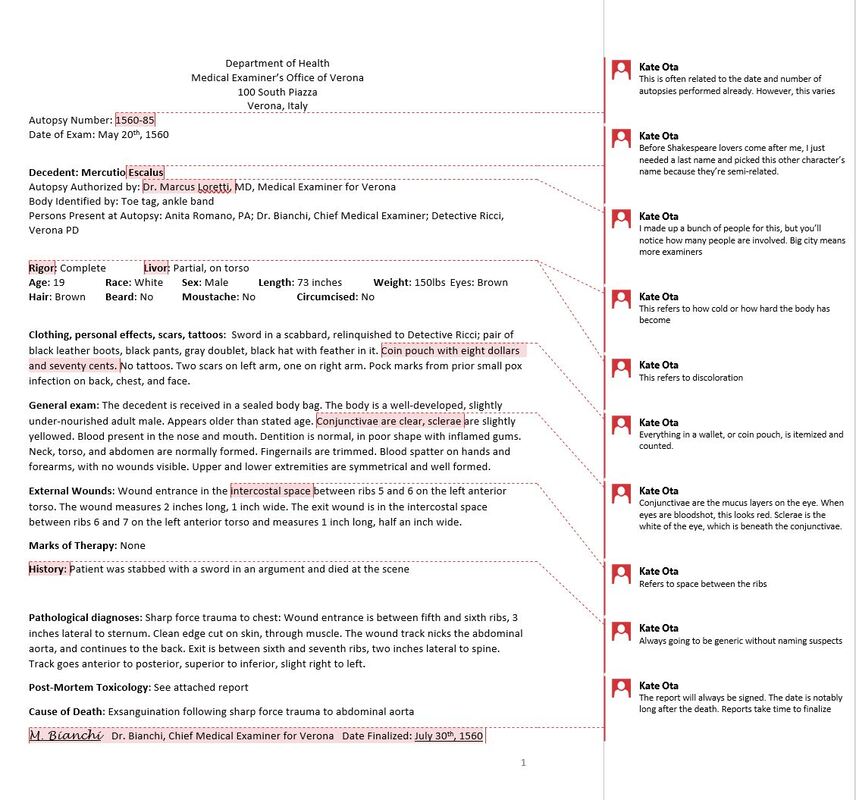
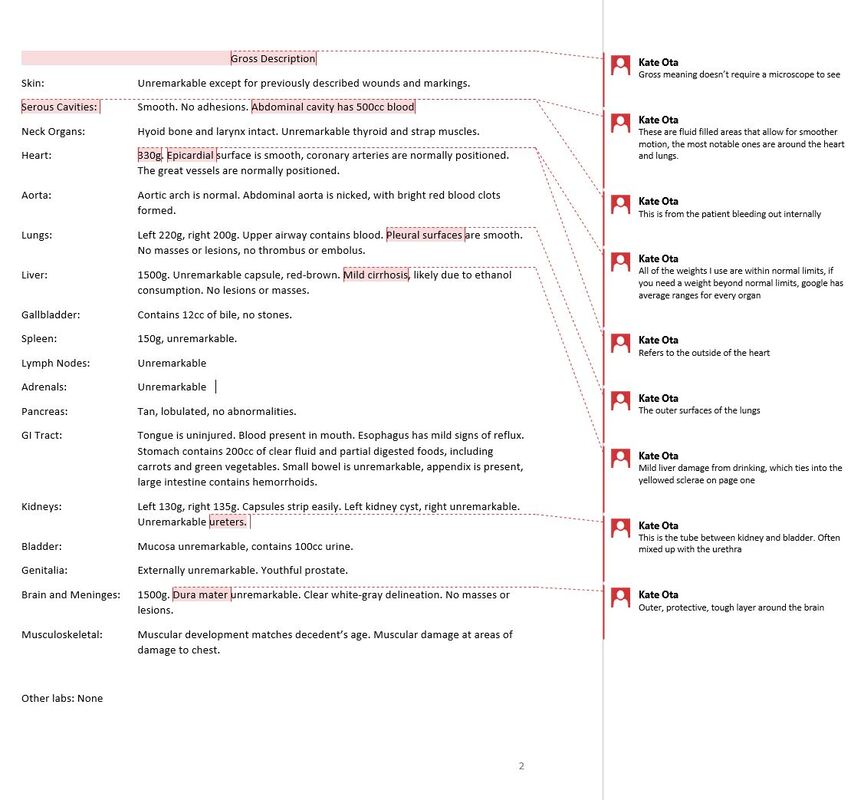
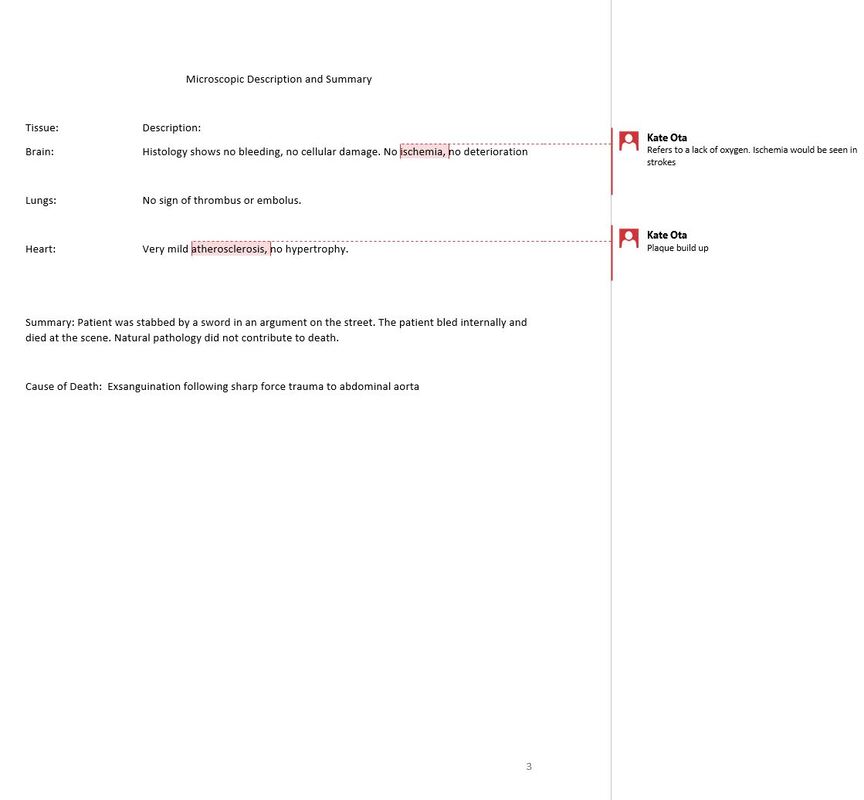
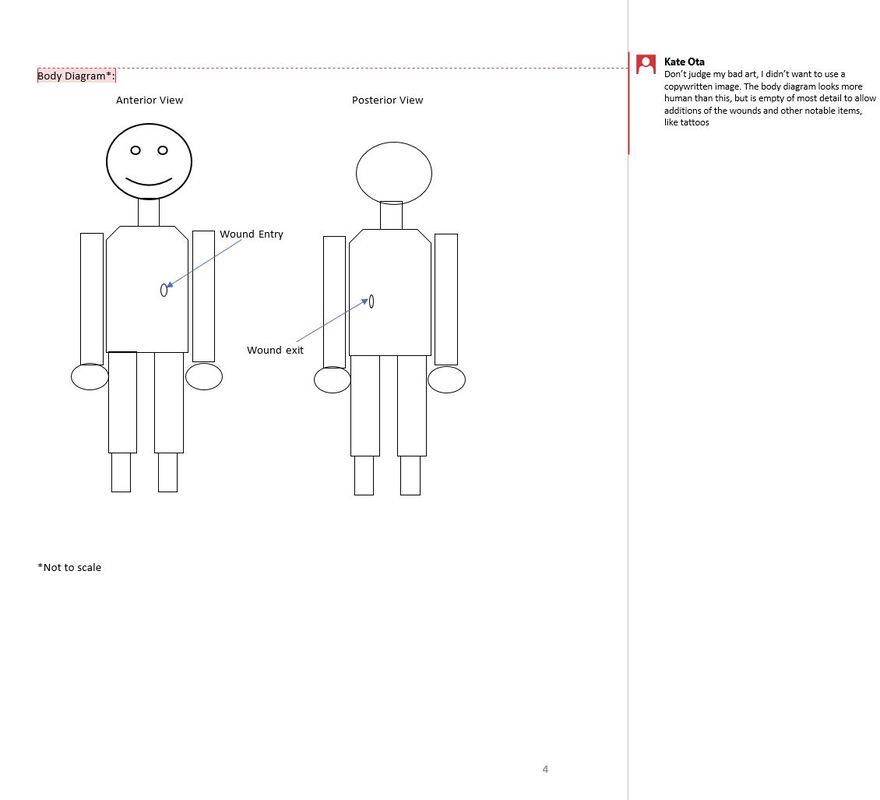
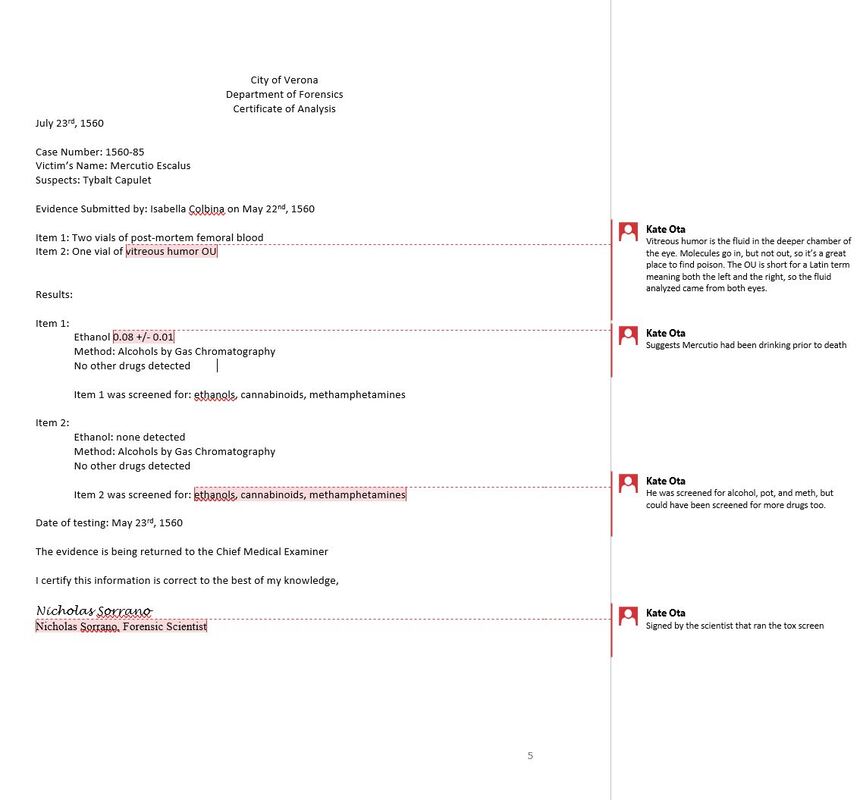

 RSS Feed
RSS Feed